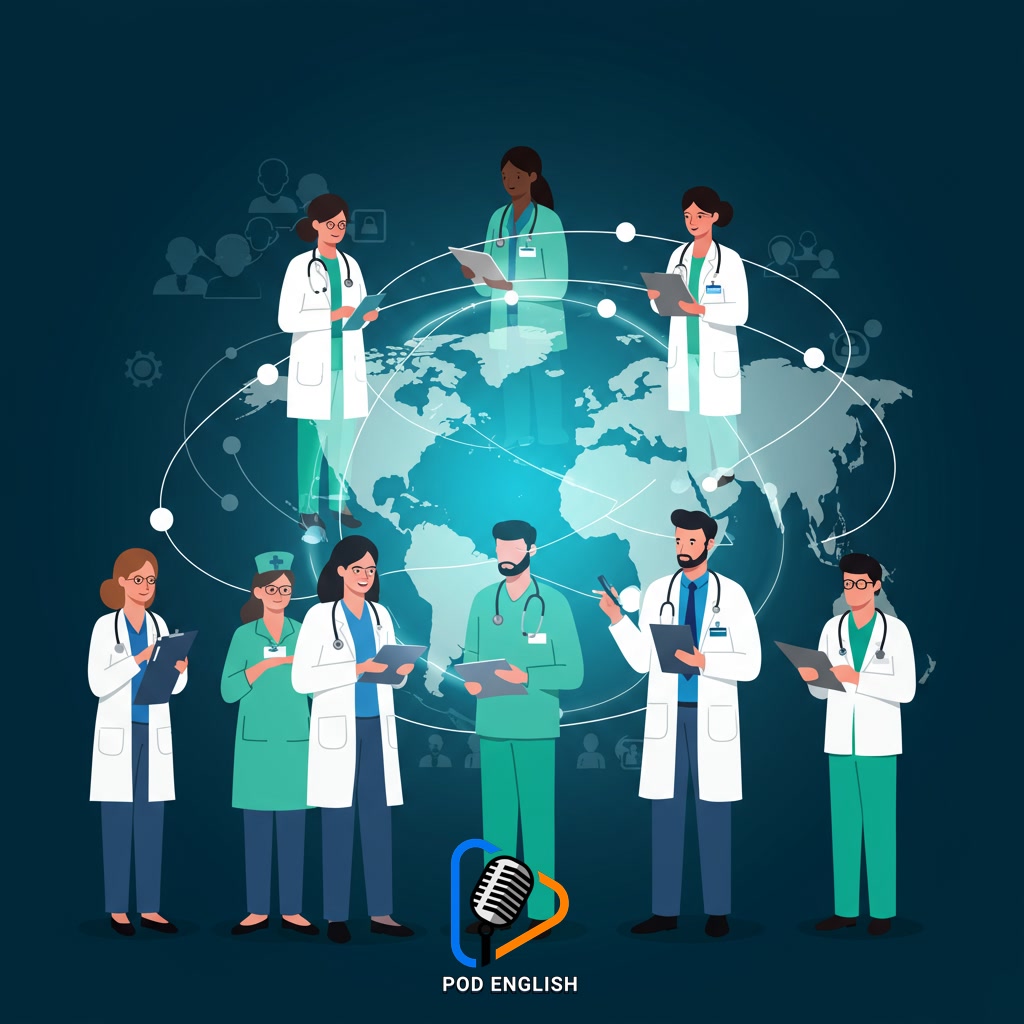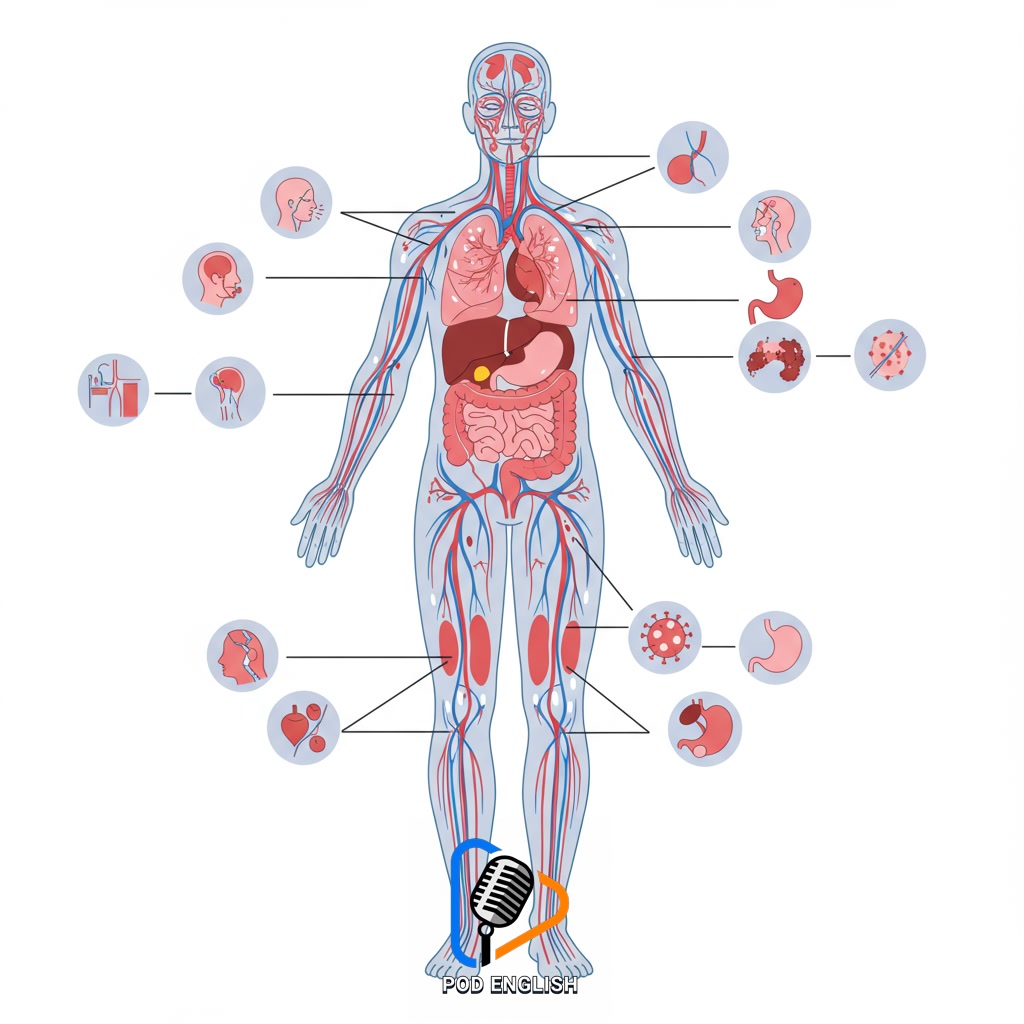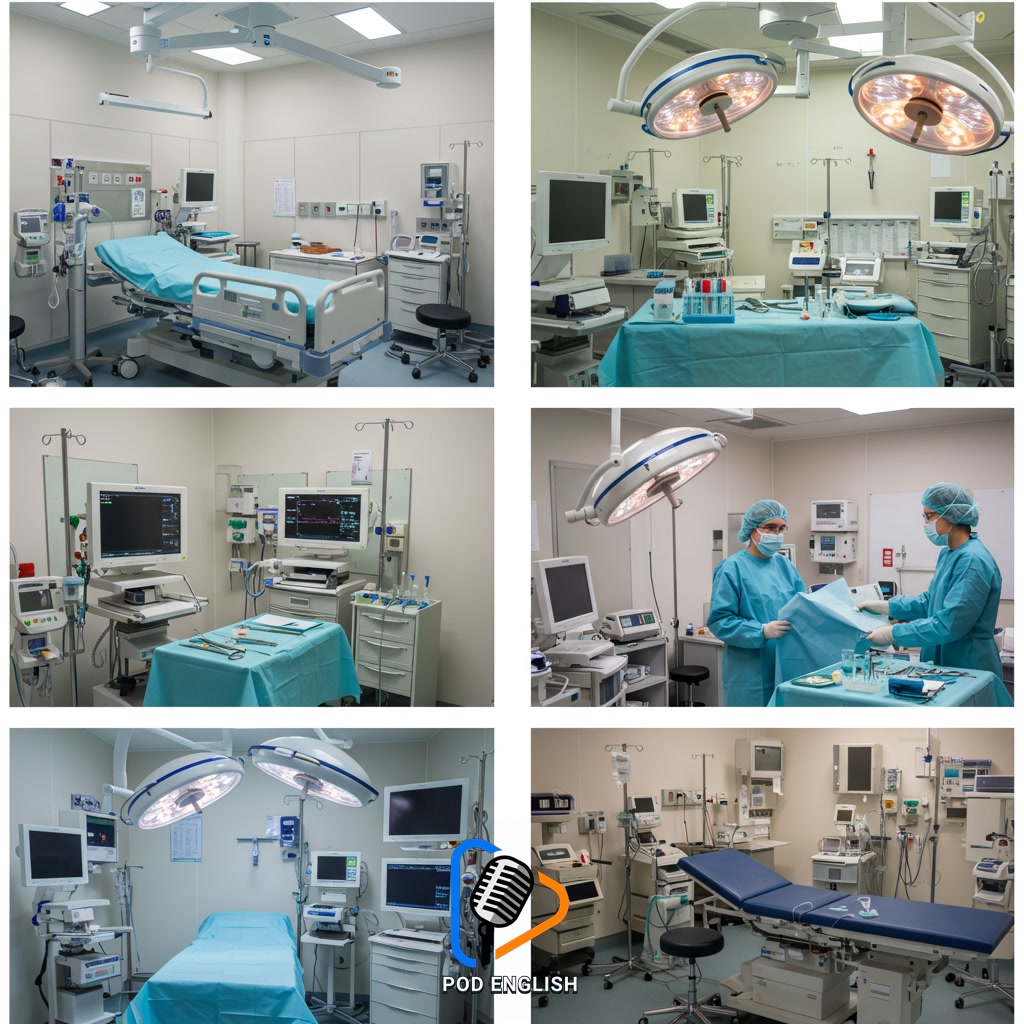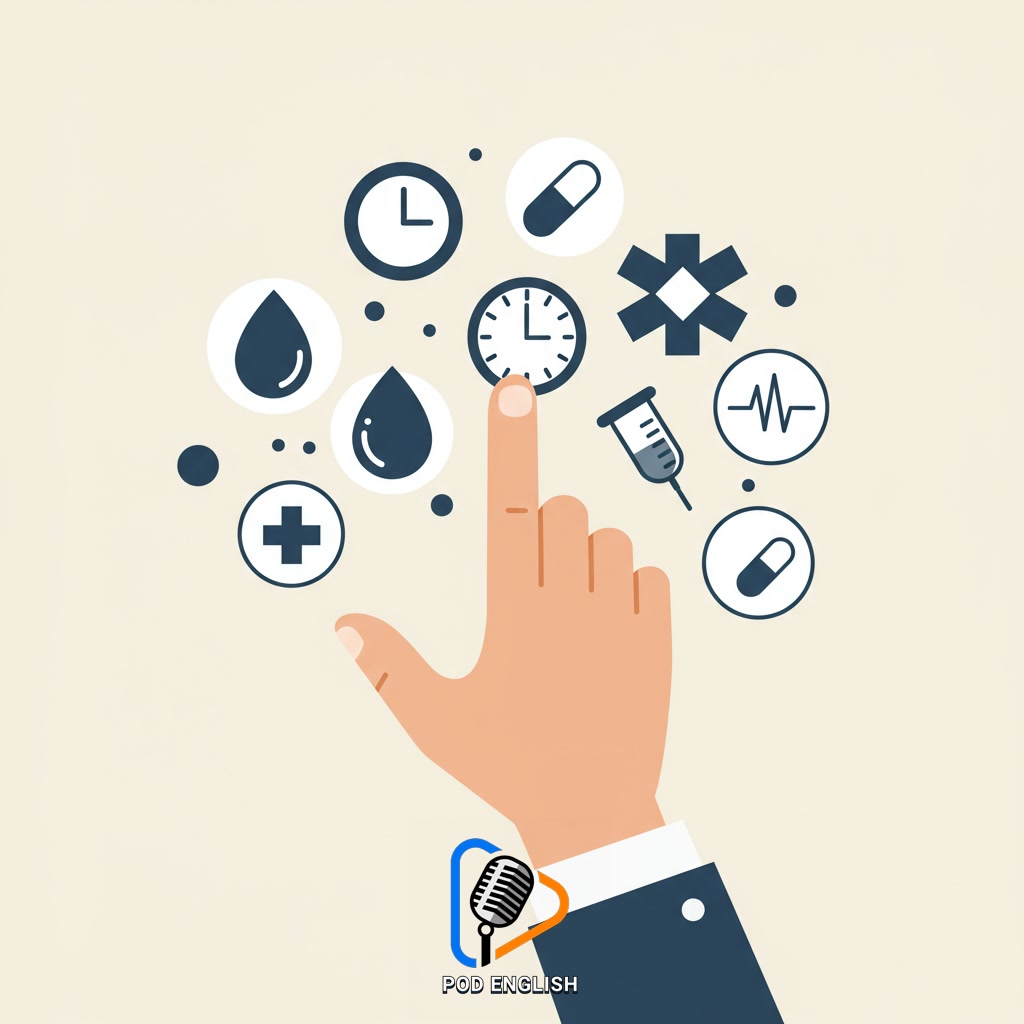Learn English
Master Key English Vocabulary and Phrases for Healthcare

This resource offers a comprehensive guide to essential English vocabulary and phrases specifically tailored for the healthcare field. It is designed for individuals actively learning English who require specialized language skills for professional communication. The content focuses on mastering key terminology and common expressions crucial for effective interaction with patients, colleagues, and medical documentation. Utilizing this material will significantly enhance one’s English language proficiency within a medical context.
Table of Contents
- Section 1: The Importance of English in Global Healthcare
- Section 2: Foundational Medical Vocabulary: Body Systems and Common Conditions
- Section 3: Key Phrases for Patient Communication and Interaction
- Section 4: Vocabulary for Specific Healthcare Settings and Procedures
- Section 5: Understanding and Using Medical Abbreviations and Acronyms
- Section 6: Improving Pronunciation and Listening Skills for Healthcare Professionals
- Section 7: Strategies and Resources for Continuous English Language Learning in Healthcare
Section 1: The Importance of English in Global Healthcare
In today’s interconnected world, healthcare is a global endeavor. Medical knowledge, research findings, and technological advancements are shared rapidly across borders. English has emerged as the primary language that facilitates this international exchange among healthcare professionals. It is the dominant language used in medical journals, textbooks, research papers, and international conferences. For anyone working in healthcare, proficiency in English is crucial for accessing the latest information, participating in global discussions, and collaborating with colleagues from different countries. Furthermore, with increasing patient mobility, the ability to communicate effectively in English is essential for providing high-quality care to a diverse patient population. Mastering English is therefore a vital step for professional growth and excellence in the global healthcare community.

The Importance of English in Global Healthcare
Section 2: Foundational Medical Vocabulary: Body Systems and Common Conditions
Building upon the understanding of English’s role in global healthcare, this section lays the groundwork by introducing essential vocabulary related to the human body. Mastering the names of major body systems – such as the circulatory, respiratory, nervous, and digestive systems – is fundamental. Equally important is learning the terminology for common health conditions and diseases, from everyday ailments like the common cold or flu to more chronic issues like diabetes or hypertension. This foundational vocabulary is crucial for accurately describing patient symptoms, understanding medical reports, and communicating effectively with both patients and fellow healthcare professionals. A solid grasp of these terms is the first step towards confidently using English in a medical setting.

Foundational Medical Vocabulary: Body Systems and Common Conditions
Section 3: Key Phrases for Patient Communication and Interaction
Building upon the foundational vocabulary of the human body, this section transitions to practical application by focusing on essential English phrases for direct patient interaction. Mastering effective communication is paramount in healthcare, enabling professionals to accurately gather patient information, explain medical conditions and treatments clearly, and provide comfort and reassurance. Here, you will learn key expressions for initiating conversations, asking about symptoms and medical history, explaining procedures or medications in simple terms, responding to patient concerns, and concluding consultations professionally. Practicing these phrases is a critical step in your learning English journey, specifically enhancing your ability to build rapport and deliver compassionate care within a medical context.

Section 4: Vocabulary for Specific Healthcare Settings and Procedures
Moving beyond general patient communication, this section dives into the specialized vocabulary essential for navigating various healthcare settings and understanding common medical procedures. You will learn terms specific to areas like hospital wards, emergency rooms, operating theaters, laboratories, and outpatient clinics. Furthermore, we will cover the language used to describe routine procedures such as physical examinations, taking vital signs, administering medications, wound care, and diagnostic tests like X-rays or blood work. Mastering these terms is crucial for accurately understanding and communicating within the diverse environments and activities that define healthcare practice, ensuring you can function effectively in specific clinical contexts.

Vocabulary for Specific Healthcare Settings and Procedures
Section 5: Understanding and Using Medical Abbreviations and Acronyms
Building upon the previous discussion of specialized terms, this section focuses on a particularly crucial aspect of healthcare communication: medical abbreviations and acronyms. These shortened forms are ubiquitous in charting, prescriptions, reports, and even verbal communication, used to save time and space. However, misunderstanding an abbreviation can lead to serious errors. Therefore, mastering the most common abbreviations, such as those related to dosages, frequencies (like BID, TID, QID), routes of administration (PO, IV), and conditions (NPO, STAT), is absolutely vital. Learning these requires dedicated study, often involving memorization and practice within realistic scenarios. Recognizing and correctly interpreting these shorthand terms will significantly improve your ability to read medical documents and communicate effectively and safely in a healthcare setting.

Understanding and Using Medical Abbreviations and Acronyms
Section 6: Improving Pronunciation and Listening Skills for Healthcare Professionals
Building upon the acquisition of specialized medical vocabulary and the understanding of abbreviations, effective communication in healthcare critically relies on clear pronunciation and accurate listening. For professionals learning English, mastering the sounds of medical terms and common phrases is essential to be understood by patients and colleagues, minimizing potentially dangerous misunderstandings. Simultaneously, developing strong listening skills allows healthcare workers to correctly interpret patient symptoms, follow instructions, and participate effectively in team discussions. This section provides strategies and practice techniques specifically designed to enhance both your spoken clarity and your ability to comprehend spoken English within diverse healthcare settings, ensuring confident and precise interactions.

Improving Pronunciation and Listening Skills for Healthcare Professionals
Section 7: Strategies and Resources for Continuous English Language Learning in Healthcare
Maintaining and enhancing English language proficiency in healthcare is an ongoing process beyond initial vocabulary acquisition and pronunciation practice. Effective strategies include consistent self-study using specialized medical English apps, podcasts, and websites designed for professionals. Engaging in regular practice with English-speaking colleagues, perhaps through role-playing common patient interactions or discussing case studies, is invaluable. Utilizing online resources like medical journals or healthcare webinars in English helps reinforce vocabulary and listening skills while staying current with medical advancements. Furthermore, seeking feedback on communication from peers or mentors can identify areas for improvement. Continuous learning ensures healthcare professionals remain confident and effective communicators in diverse medical settings, adapting to new terminology and situations.

Strategies and Resources for Continuous English Language Learning in Healthcare













